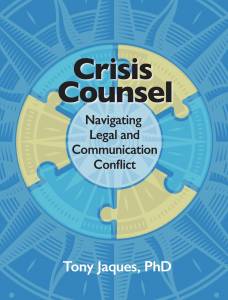How moral blindness breeds plummeting corporate reputation
by Tony Jaques, Director of Issue Outcomes Pty Ltd, for people who work in issue and crisis management
Qantas. PwC. Rio Tinto. Optus. Telstra. Medibank. Facebook/Meta. Twitter/X. Any of the big banks.
The sound you can hear across the big end of town is the shredding of reputations in the wake of corporate crises, often triggered by moral blindness.
Releasing the latest Roy Morgan Trust Index, CEO Michelle Levine said Australians have never been more distrusting of business since their risk monitor began in 2017, and distrust of corporations had soared dramatically after COVID.
“Once the crisis had passed,” she said, “they found the new freedoms they had enjoyed under the cover of COVID hard to relinquish, and a kind of Moral Blindness became endemic.”
Referring to the unprecedented decline in trust of Qantas, she asserted there was moral blindness everywhere, from appalling call center delays, canceled flights, and snail’s-pace fare refunds, to former CEO Alan Joyce refusing to pay back any of the $2 billion in “corporate welfare”, despite the company surging back to billion-dollar profitability.
Of course, Qantas was not the only company to be accused of making unfair profits during a cost-of-living crisis. Australian supermarket giants Coles and Woolworths, for example, came under attack after announcing bumper annual profits of over $1 billion each at a time of food insecurity.
While business experts explained that such profits were not extraordinary given the size of these companies, Amy Booth and Danny Carney from a Tasmanian consumer protest group seemed to be reflecting a wider opinion when they declared that people “…understand they’re being screwed by the two big supermarkets.”
“They know it’s unfair that they make billions in profits while people steal or starve themselves to survive.”
Unsurprisingly, Coles and Woolworths made reassuring statements acknowledging that many people were doing it tough, and both pledged they were looking for ways to help reduce consumer costs.
However, the challenge for issue and crisis managers is not to try to reconcile polarised views about the competing demands of consumers and shareholders. It’s to recognize that, irrespective of the facts, the opinion and experience of consumers, investors, the media, and other stakeholders is what determines trust and reputation. Brand is what you say about yourself, while reputation is what other people say about you. And corporate reputation overall is plummeting.
Two key reasons are a perceived decline in management behavior and a rise in moral blindness from a supposed growing corporate culture of money over community responsibility. Moreover, it doesn’t even matter if that’s not true.
Corporate culture is how organisations behave when people aren’t looking. But more and more people are now looking, and too often they are mightily impressed by what they see. Whether it’s Royal Commissions into the banking and casino industries; the latest news media exposé; or the rapidly increasing pace of legal action by various corporate cops against a growing list of business wrongdoers. Little wonder that reputation is increasingly at risk.
While experts argue about the exact numbers, most agree that reputation generally accounts for 50-60% of the share value of corporations, and much higher in many cases, depending on the industry. That is a massive amount of value at stake.
Take the case of BP in the UK which was already under pressure because of a massive boost to profits and executive bonuses on the back of rising petrol prices because of war in Ukraine. Then last month the CEO was sacked because of “workplace flings” and BP’s share value fell by $3.6 billion.
Managers and communicators need to fully understand that reputation is a core business asset – driven by what you do, not by what you say or what you promise – and there is very little chance it will improve while bad behavior continues.
A Parting Thought
“Without intervention, we will see a continued move from a crisis of institutional trust to a crisis of interpersonal trust”
– Richard Edelman
Learn more about Reputation Risk, CEO apologies, and Crisis communication in Tony Jaques’ new book, Crisis Counsel: Navigating Legal and Communication Conflict.
Find Tony’s book at Amazon.com
confirms Tony Jacques’ position as one of the industry’s foremost experts on issues and crisis management. In addressing the complex interactions between legal and communication crisis responses Dr. Jacques provides riveting case studies and practical advice. It highlights the financial and reputation risks of not effectively integrating communications and legal counsel. It should be on every communications practitioner’s reading list, and companies should insist their in-house and external legal counsellors read it.” – Noel Turnbull, Former Chair of Turnbull Porter Novelli, Adjunct Professor, RMIT University.

 “
“